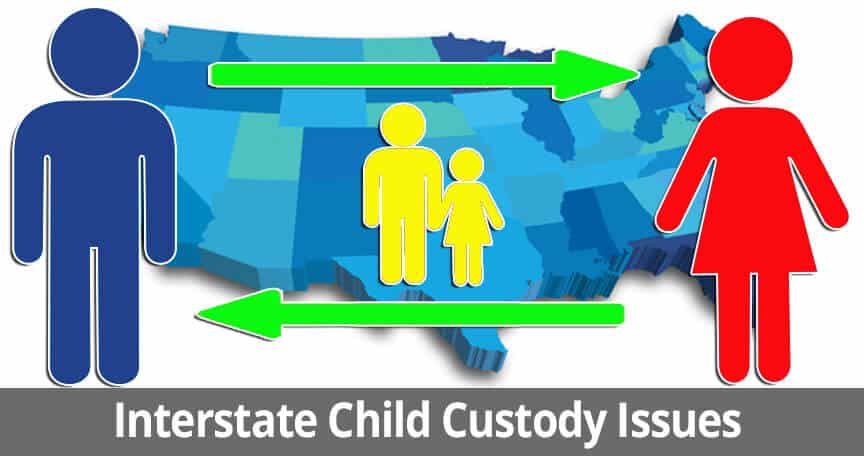How is Interstate Child Custody Handled on Long Island?

Child custody matters are difficult enough without adding distance to the mix. Unfortunately, many Long Island families must deal with exactly that. Navigating family legal issues when two parents live in different states requires a special set of rules that differ from those related to custody cases where the parents and child all live in the same state. Here’s what you need to know about long-distance child custody.
The Uniform Child Custody Jurisdiction and Enforcement Act (UCCJEA)
The Uniform Child Custody Jurisdiction and Enforcement Act (UCCJEA) was created out of necessity for handling complex interstate custody cases. Where one set of state laws governed custody, support, and visitation matters, when parents live in different states, there are now two sets of state laws. Navigating between them prior to the UCCJEA was challenging at best, but the Act instituted a “home state” rule that requires custody cases to establish which set of laws apply and which state governs custody. This is the state that will have jurisdiction over all custody matters throughout the life of the child, with a few exceptions.
Determining the Child’s ‘Home State’ for the Purposes of Custody
Under the Uniform Child Custody Jurisdiction and Enforcement Act, the home state can be determined by asking:
Where Has the Child Lived for the Last Six Months?
Typically, wherever the child has resided with a parent for the last six months is the state that will have jurisdiction over the custody case. This is considered the “home state,” or the state whose laws regarding custody, support, and visitation will apply. If the child is younger than six months old, the home state is usually the one in which the child was born.
Does the ‘Significant Connection and Evidence’ Rule Apply?
In some instances, the child hasn’t lived in any state for six months. For example, if a child was born in New Jersey and then moved to Long Island at three months old, which court would have jurisdiction? The child was born in New Jersey, so this would likely be considered the home state. However, say the child’s non-custodial parent, a Long Island resident, filed a custody motion. If the child had developed connections on Long Island and New York courts had reason to believe that the child’s safety or wellbeing was at risk within their state, they may be able to intercede.
In this case, where a state has a “significant connection” to a child and evidence exists that suggests that reasonable concern about the child’s safety is warranted, they may exercise jurisdiction over the custody case. Both criteria must be met for the significant connection and evidence rule to be considered applicable in a particular family legal case.
Is There Evidence That a Court Should Take Emergency Jurisdiction?
If domestic violence is a factor, neither the six-month rule or the significant connection and evidence rule apply. Any state can assume emergency jurisdiction over a custody case and can make decisions as though they were the home state to keep the child safe. This is true even after the child’s home state has been established. For example, this could include revoking custody and visitation from an abusive parent, or establishing supervised visitation on a new schedule. Emergency jurisdiction is temporary and lasts only as long as the danger to the child exists; at some point, jurisdiction will return to the home state.
Importance of Working with an Experienced Attorney When Dealing with Interstate Child Custody Issues
Matters of child custody are wrought with emotion, and when two parents are separated across state lines, there are a number of unique challenges to overcome. It’s critical to work with an experienced divorce lawyer who has represented interstate child custody cases successfully. No matter which side of the situation you’re on, we know you want to protect your child’s best interests and do what’s best for your family.
Contact our Long Island divorce law firm today to learn more about interstate child custody matters and divorce law, or to schedule your initial consultation to discuss your case. We’ll go over the details of your circumstances and inform you of the legal options available to you. Call now at 631-923-1910.
SCHEDULE YOUR FREE CONSULTATION TODAY
Call 631-923-1910 or fill in the form below
Schedule your complimentary consultation and case evaluation with our experienced attorneys today. When you call, you’ll speak to our friendly Client Services Director, who will be able to answer your general questions and set up your appointment with an attorney who specializes in your unique case.
At your meeting, your attorney will describe the many options available and determine together which is the right solution for you. By the end of this meeting we’ll all understand how we can best help you to move forward.
No Cost or Obligation
There is no cost or obligation for this initial consultation. It is simply an opportunity for us to get to know each other, answer your questions and learn if Hornberger Verbitsky, P.C. is right the right law firm for you. Give us a call at 631-923-1910 or fill in the short form below to schedule your free consultation and case evaluation.
All Fields Are Required